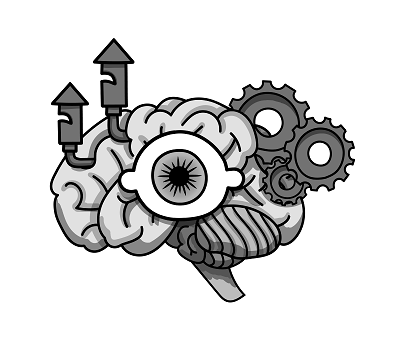“When someone says both sides, its obvious they have not been watching the actions of the political parties. Lets look how they vote.” - /u/armored_cat
Really annoys me when I read apathetic people saying that Dems and Reps are the same. Yes, there’s a lot of crony corpos in the Dems side but they are in no way even close to the same. There’s a lot of stuff the Dems have done that I’m not a fan of, but are still not even close to being the same as Reps.
This is a great comment that outlines the stark differences on voting records that I archived so it wasn’t lost.
They are not the same, make sure you vote to keep the fascists out. Also vote in the primaries so we can get more progressive/populist representatives as candidates. Voting is not the only answer to salvage the future but it’s definitely a part of the answer.



Firstly, that pessimistic attitude is invading the minds of many and all it does is confuse values and prevent progress, so I would recommend focusing on doing what you can to assert your values and bring change rather than spreading fatalism.
Secondly, this formulation has been done to a great extent by Ayn Rand, and reading Peikoff’s full exploration of her ideas would be a great way to see this in detail. I think her prejudice prevents her from reasoning accurately on some higher-level points, but the point is that ethics and politics can be derived from basic axioms specifically because all humans have one core value of their own continued existence. I’ve been working the details out and I’d like to talk about it if you are interested in playing with the ideas.
Ayn Rand is so very much not the person I want to be the guiding light for AGI. That’s not even a subtle failure.
Anyhow, this is the stuff I’m actually pretty focused on in day to day life. I have a fair degree of fatalism because I have a well-grounded idea of exactly how hard it is. That doesn’t mean I’ve given up, but I don’t think covering our eyes and ears and saying, “LA LA LA SHUTUPSHUTUPSHUTUP” is going t solve the problem.
“Reality is that, which when you stop believing in it, doesn’t go away.”
Have you really looked into her philosophical work? I think she’s historically the closest to constructing a convincing ethical system based on logical principles connected to reality. Your last quote is something that might as well have been a toned-down version of her ideas, given how close it is to what she believed in her life.
I don’t suggest ignoring anything. However, many people take the fatalist perspective as a careful one without really evaluating its accuracy, and thus it spreads and locks an uncertain future into the result it assumes.
The “greed is good actually” line is the one I take issue with. It’s very shortsighted and I really don’t want anything with more power than our species taking it to heart.
Okay, but have you read a construction of her actual system? It’s not about greed, it’s a system of ethics based on two things: basic metaphysical axioms you must accept to even consider any kind of philosophical discourse, and the fact that human being are alive. It sounds impossible, but she created a 100% objective system of ethics based on these principles, hence the name Objectivism. The point isn’t whether you like the idea or not, the point is whether you understand the logical origin of the ideas and why they are correct. It’s a deeply interesting system if you want to fully examine it. Here is a link to an objective source on her work including many criticisms that might help you understand it better if that’s something you wish to do.
https://plato.stanford.edu/entries/ayn-rand/notes.html#note-7
So why were her fiction books about “Screw you I got mine”, as well as her life? Was she a terrible representative of her system, or is there perhaps an issue with the system?
Ad hominem and a complete mischaracterization of Rand and her books? At this point I don’t know if we’re talking about the same person.
Yes, Objecticism is founded on ethical egoism, but altruistic values are emphasized when they are consequences of basic virtues. There isno emphasis on failing to help others, but instead encouragement to do so only when one truly wishes to, free of guilt for what one has earned.
Also, Rand lived a rather generous life herself i many ways, especially for an egoist. Also, claiming her system of ethics is bad because she is a bad person is circular and useless. ;)
If she exemplified her system of ethics, and also was a bad person, then yes, the system is bad. If she failed to exemplify her system of ethics, it doesn’t tell us much one way or the other about the quality of that system regardless of her behavior. It’s not an ad hominem when we are directly talking about systems of ethics, to discuss a person’s behavior.
I don’t see all the wealthy people running away from paying taxes for the common good to be much of an example of altruism. Charity, as a system of dealing with social issues, does not work. Assistance needs to be spread out evenhandedly, not as a system of rewards and punishments for doing whatever the wealthy find pleasing. I’m not sure how someone could make a stand that that’s not just pushing people to be performing animals for treats, which is gross.
Is there a specific single book on her philosophy that covers it all that you’d suggest I read? I do want to be evenhanded about this, and it has been some time since I read Atlas Shrugged and The Fountainhead, at the insistence of a business major friend of mine who thought I was too altruistic and needed some tempering.
The way you talk about Rand, her life, and her philosophy sounds like you get those beliefs from others who have processed these things already. I remember being told by a professor od philosophy that ethical egoism was “screw you, I’ve got mine” just as you have said, and that because Rand died as a result of her smoking and she cheated on her husband at one point, clearly her ideas are worthless. These examples constitite a straw man and ad hominem, plain and simple, circular as well. The fact that you and this think that an ethical system can be “bad” instead of just “inaccurate” demonstrates that you are assuming an ethical system already to wvaluate it; this must be avoided, because it is impossible to learn without accepting ideas that contradict one’s current beliefs and values.
As for the ineffective nature of charity…mathematically, that’s not true. But either way, in Objectivism, ethical egoism condemns force and any moral obligation to be altruistic, so any direct welware program would be unethical. If you want to give people a chance at a better life, all you can do is lend a hand to those in need…AKA you can volunteer every week like me, or look into Effective Altruism, which I am sure you are very familiar with already. Altruism in this sense of the word is good because it increases the wealth of society, thereby increasing my chance of happiness in life. However, it is certainly not true that every last person who doesn’t want to work to survive–I know and have known plenty of people like this–deserves the resources of those who are highly productive. On the other hand, chariry is a value Ayn Rand holds, but only when one can not only spare it, but serves to benefit from it, which is not as uncommon a situation as you might think.
Finally, for a book, “Objecticism: the Philosophy of Ayn Rand” is a full construction of her philosophy from core principles onward. If you read it, try to follow the logic from basic principles onward and derive the whole system before you judge it emotionally, and see if it holds its own as a philosophy. Good luck, I hope you benefit from it.